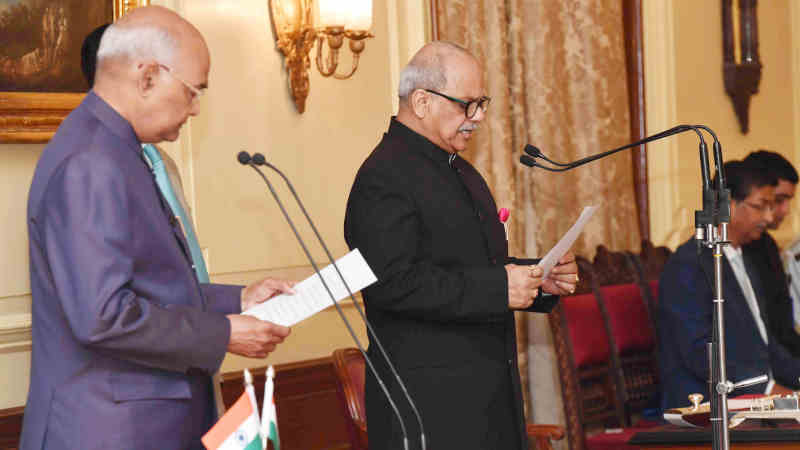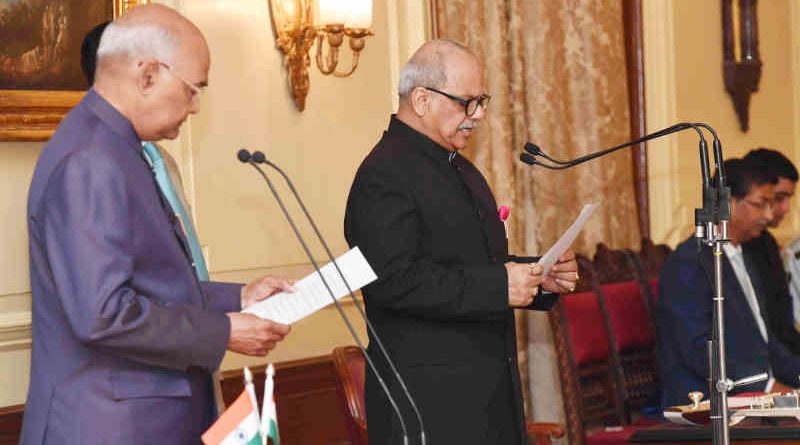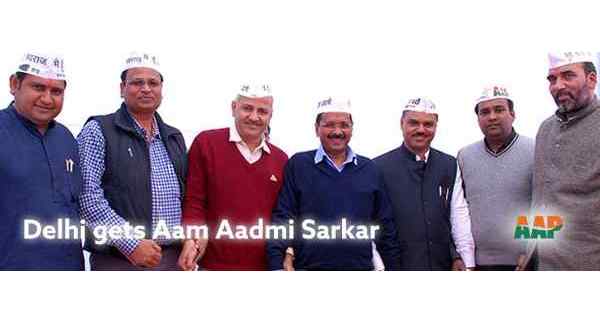How the Lokpal Fails to Stop Corruption in India

How the Lokpal Fails to Stop Corruption in India
Today, most anti-corruption organizations such as the Lokpal, Central Vigilance Commission (CVC), Central Bureau of Investigation (CBI), and the Supreme Court of India exist only as toothless outfits that have repeatedly failed to resolve serious corruption cases involving top bureaucrats and politicians.
By Rakesh Raman
While there have been serious doubts over the manner in which India’s top anti-corruption authority Lokpal was set up, new reports suggest that the entire exercise of the appointment of Lokpal was held in a dubious manner.
As the government-appointed ombudsman is responsible for investigating corruption cases of the Central government and its public functionaries, the office of Lokpal was established in March 2019 when Justice Pinaki Chandra Ghose was handpicked as the Chairperson.
Since the selection process was not transparent, a Congress leader and Member of Parliament (MP, Lok Sabha) Mallikarjun Kharge had declined to attend a meeting to select the Lokpal. Kharge also said the meeting was only to satisfy the order dated February 23, 2018 of the Supreme Court regarding the appointment of Lokpal.
However, Kharge added, the conduct of the government seeks to diminish the spirit and objective of appointment of Lokpal in as much as you seek to deny participation, voice and opinion of the opposition.
INC COMMUNIQUE
Letter by LS LoP @MallikarjunINC to the Prime Minister declining invitation to the ‘Selection Committee’ of the Lokpal as a ‘Special Invitee’. pic.twitter.com/zQgf0WL8HC
— INC Sandesh (@INCSandesh) March 1, 2018
As the opposition leader in the Lokpal selection committee, Kharge also posted a letter which he had sent to Prime Minister (PM) Narendra Modi declining invitation to the ‘Selection Committee’ of the Lokpal as a ‘Special Invitee’.
DUBIOUS SELECTION OF LOKPAL
In order to keep the Lokpal selection process under wraps, the Central Information Commission (CIC) – which is also an obedient department of the government – has refused to disclose the minutes of the meetings of the Selection Committee for the Lokpal.
An RTI (Right to Information) activist Anjali Bhardwaj had filed a petition with the Department of Personnel and Training (DoPT), seeking records related to the process of selection of the Chairperson and Members of the Lokpal.
It was argued in her appeal that transparency in the appointment of oversight bodies is a crucial safeguard against arbitrariness in appointments and to ensure their independent functioning.
However, according to a report of February 10, 2021 by The Wire news service, the CIC has refused to entertain the request regarding the meeting details of the Lokpal Selection Committee.
CIC refuses to disclose minutes of meetings of Selection Committee for Lokpal under #RTI . Upholds denial by DoPT on grounds that minutes were supplied in confidence by 3-5 high level dignitaries! Transparency in appointments is key to ensure public trust in bodies like #Lokpal pic.twitter.com/eo7fj3JR9A
— Anjali Bhardwaj (@AnjaliB_) February 12, 2021
“CIC refuses to disclose minutes of meetings of the Selection Committee for Lokpal under RTI. Upholds denial by DoPT on grounds that minutes were supplied in confidence by 3-5 high level dignitaries! Transparency in appointments is key to ensure public trust in bodies like Lokpal,” Ms. Bhardwaj expressed in her tweet of February 12, 2021.
Today, most anti-corruption organizations such as the Lokpal, Central Vigilance Commission (CVC), Central Bureau of Investigation (CBI), and the Supreme Court of India exist only as toothless outfits that have repeatedly failed to resolve serious corruption cases involving top bureaucrats and politicians.
The Lokpal was expected to weed out massive corruption from India, but it appears that this office exists only as a stillborn body which is protecting the corrupt government functionaries instead of catching them.
CORRUPTION IN MODI GOVERNMENT
While rampant corruption is happening at every step in India, the untamed bureaucrats are blatantly defying laws that are supposed to prevent corruption. The latest Corruption Perceptions Index (CPI) released in January 2021 by Transparency International reveals that India is among the most corrupt countries of the world.
The index, which ranks 180 countries and territories by their perceived levels of public sector corruption, asserts that India, with a score of just 40, is ranked 86 in the world. In other words, India is more corrupt than 85 other countries.
Similarly, the Global Corruption Index (GCI) 2020 has given India a score of 51.93 out of 100 and ranked it at 100th position. The GCI reveals that both direct corruption measures, i.e., the indicator of corruption perception and that of bribery experience in recent transactions, indicate significant corruption risks in India.
The immediate task before the Lokpal was to resolve the pending corruption cases in which top politicians and bureaucrats are facing serious corruption charges. But even after 2 years of its existence, the Lokpal could not resolve even a single such case. Worse, it could not even make processes to deal with corruption cases.
While Lokpal is squandering huge public funds and sitting like a parasitical outfit, it is being observed that corruption has increased manifold under the Modi government.
In fact, Modi himself is embroiled in a number of corruption cases, including the Rafale deal, secretly floated PM-CARES Fund, Sahara-Birla payoff case, and a number of other cases in which his party colleagues are involved.
Apart from bureaucratic and political corruption, now there are also reports of judicial corruption under Modi’s regime, and corruption is the main cause of socio-economic meltdown and increasing unrest in India.
As the focus of the Modi government is on encouraging corruption and ignoring governance, global research reveals that India has almost lost its status of democracy and it has become an autocratic country under Modi.
Political and bureaucratic corruption is the main cause of unemployment, poverty, pollution, sickness, and hunger in India. And for all this misery, institutions such as the Lokpal are responsible. Therefore, the top bosses at Lokpal must take moral responsibility and step down from their positions.
And it will be the right step to wind up the Lokpal office and all other anti-corruption government departments instead of wasting public money on them. The sooner the better.
By Rakesh Raman, who is a national award-winning journalist and social activist. He is the founder of a humanitarian organization RMN Foundation which is working in diverse areas to help the disadvantaged and distressed people in the society. He also runs The Integrity Bulletin news magazine on international corruption cases and issues.





